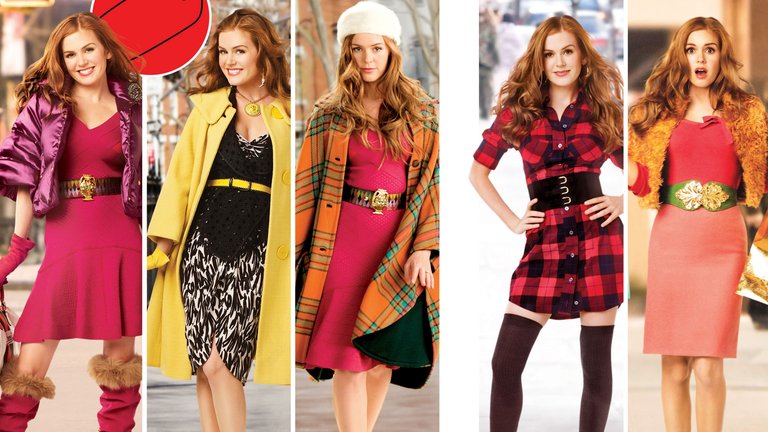Film Review: Confessions of a Shopaholic (2009)

Films can often be marred by unfortunate timing, a fate that befell Confessions of a Shopaholic, a 2009 romantic comedy directed by P. J. Hogan. Released in time when the global economy was still reeling from the catastrophic stock market crash of 2008, the film's light-hearted focus on a protagonist whose primary struggle is reckless spending felt particularly jarring. With millions grappling with loss of livelihood, the film's premise, which revolved around an addiction to shopping, seemed tone-deaf and misaligned with the audience's reality.
Confessions of a Shopaholic is adapted from the first two novels in Sophie Kinsella's bestselling Shopaholic series. Kinsella, a British author known for her humorous take on modern consumerism and female identity, created a character that resonated with readers through her relatable flaws and comedic misadventures, at least before 2008 crash.
The film stars Isla Fisher as Rebecca Bloomwood, a young aspiring journalist in New York City who shares apartment best friend Suze Cleath-Stuart, played by Krysten Ritter, and grapples with her compulsive shopping habits. Despite her humble beginnings and a job that barely pays the bills at a gardening magazine, she is captivated by high fashion and luxury brands. Her obsession led her into significant debt, primarily accrued through her extensive use of credit cards. Rebecca dreams of landing a position at the prestigious fashion magazine Alette, but fate intervenes when she is offered a job writing for Successful Saving, a financial publication located in the same building. As she adopts the pen name “The Girl with a Green Scarf,” her columns gain popularity, drawing attention not only from readers but also from her attractive editor Luke Brandon (played by Hugh Dancy). However, before she can find true happiness, Rebecca must confront her shopping addiction and somehow find a way to pay her overwhelming debts.
While taken out of its historical context, Confessions of a Shopaholic is a standard Hollywood romantic comedy that attempts to blend unconvincing romantic fantasy with mild humour. However, what sets it apart is its portrayal of shopping addiction as a source of cheap laughs rather than a serious and debilitating impediment to one's future.
P.J. Hogan has previously found success in the same genre and does an acceptable job in directing this film. Much of the film’s success hinges on Isla Fisher’s charm and comedic talent; she brings energy and vibrancy to Rebecca Bloomwood. Despite her strong performance, the supporting cast remains largely forgettable, with Krysten Ritter standing out as Rebecca’s best friend and moral compass. In contrast, Fisher’s chemistry with Hugh Dancy is notably lacking, which detracts from the romantic subplot.
The film's most significant flaw lies in its inconsistent script, which attempts to serve as both a cautionary tale about overspending and an endorsement of consumerism through its unconvincing story. While it aims to highlight the dangers associated with living beyond one’s means, it inadvertently glorifies materialism by allowing Rebecca to effortlessly resolve her financial woes and achieve career success despite her irresponsible behaviour. This contradiction didn’t go unnoticed by audiences; even those less attuned to such nuances might recognise this inconsistency. Consequently, while Confessions of a Shopaholic achieved decent box office results, it was not considered a hit or remembered with particular fondness.
Confessions of a Shopaholic appears even more problematic today, thanks to the passing remark made by Rebecca's father (played by John Goodman) about US government functioning despite its own spending parallels his daughter’s credit card debts. This observation feels increasingly relevant given the rise of US national debt levels over the past decade and beyond. The implications of such financial irresponsibility have manifested in various societal issues including infrastructure decay, social unrest and unforeseeable geopolitical consequences. As audiences grapple with these realities, Confessions of a Shopaholic may elicit more winces than laughs.
RATING: 3/10 (+)
Blog in Croatian https://draxblog.com
Blog in English https://draxreview.wordpress.com/
InLeo blog https://inleo.io/@drax.leo
Hiveonboard: https://hiveonboard.com?ref=drax
Rising Star game: https://www.risingstargame.com?referrer=drax
1Inch: https://1inch.exchange/#/r/0x83823d8CCB74F828148258BB4457642124b1328e
BTC donations: 1EWxiMiP6iiG9rger3NuUSd6HByaxQWafG
ETH donations: 0xB305F144323b99e6f8b1d66f5D7DE78B498C32A7
BCH donations: qpvxw0jax79lhmvlgcldkzpqanf03r9cjv8y6gtmk9
i have not watched "Confessions of a Shopaholic" before and with that low rating i do not think that i will watch it. "what sets the film apart is it's portrayal of shopping addiction as a source of cheap laughs rather than a serious and debilitating impediment to one's future" i totally agree specially that "While it aims to highlight the dangers associated with living beyond one’s means, it inadvertently glorifies materialism by allowing Rebecca to effortlessly resolve her financial woes and achieve career success despite her irresponsible behavior". good article well done
Hello.
There is reasonable evidence that this article is machine-generated.
We would appreciate it if you could avoid publishing AI-generated content (full or partial texts, art, etc.).
Thank you.
Guide: AI-Generated Content = Not Original Content
If you believe this comment is in error, please contact us in #appeals in Discord.